Armed forces children: Missing mum and dad
- Published
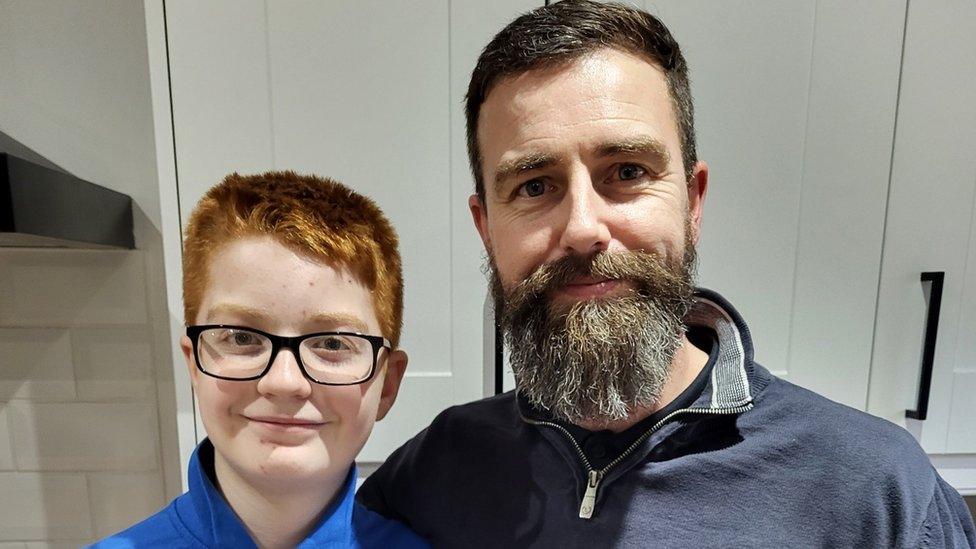
Riley's dad Bob was in the Army for 22 years but has now left and is training to be a teacher
When I was growing up, I had to say goodbye to my dad every week.
He once missed my birthday, because as a staff sergeant in the Royal Corps of Signals, the Army always had to come first.
I'm 12 and as a BBC young reporter I wanted to highlight what life is like for children who have parents in the armed forces.
I also wanted to ask whether service children have the right support to cope with the disruption that comes with army life.
I go to school in Pembrokeshire but I was born in Germany in 2010 when my dad was stationed there.
My dad, Bob, spent 22 years in the Army, including two tours of Afghanistan. I have two younger sisters and a younger brother.
My mum, Sarah, often had to cope with us all on her own when dad was away.
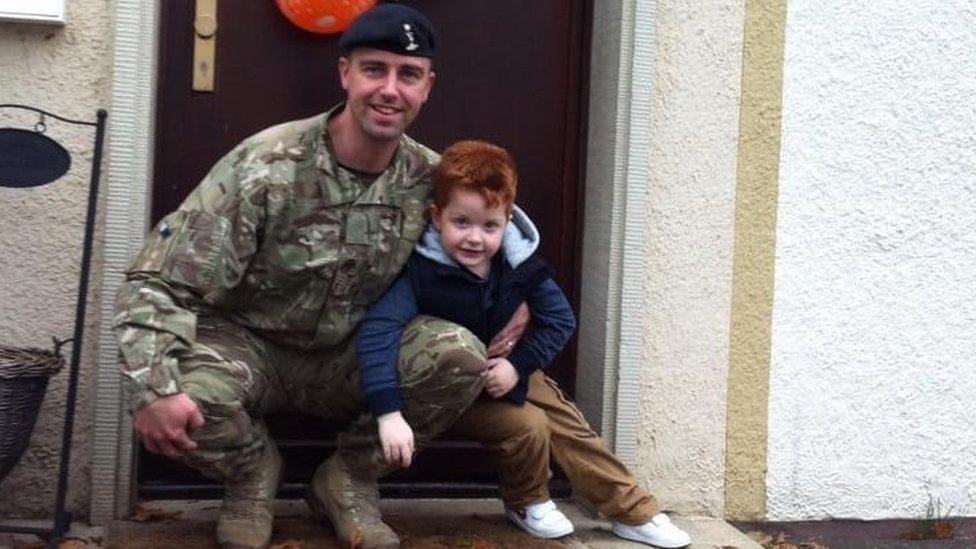
Riley missed his dad when he was away from home
When I was younger, I was often left bewildered when dad went away, and later, I would notice that he had to miss our birthdays and other important events.
Dad left the Army in 2020, but the experiences I had growing up have stayed with me.
An organisation called SSCE Cymru (Supporting Service Children in Education) helped to put me in touch with other service children in Pembrokeshire.
Haverfordwest High VC School is an impressive new school, which has about 1,500 pupils.
More than 50 of the pupils have links to the armed forces, either through parents who are active members of the armed forces or who are veterans.
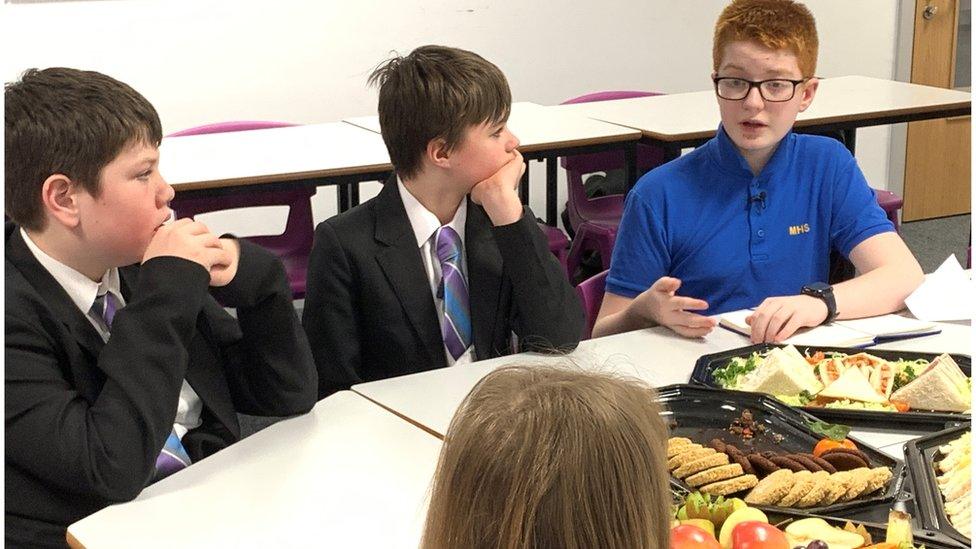
Riley interviewed pupils at Haverfordwest High after winning a BBC competition to be a young reporter
I got to speak to some of the kids who attend a special club at the school which helps support them.
Gracie, 12, had two parents in the Army, but they have left. She was born in Gibraltar.
"It has been really hard when my dad's had to go away," she said.
"He's gone to Canada for six months before and he's missed my seventh birthday before, and we've had to move around a lot, so that's been really hard. To go to a different school and different countries a lot and try to make new friends.
"You wake up in the morning and you expect to see both your parents there but they're not, one is away. It's just sad because you sometimes wonder what's going on and are they OK. You're always wondering if they're OK."
Emma's mum is in the Army and until she was nine, she had to go away every other week.
"I was in a constant cycle of saying goodbye," she said.
"By the time my mum was home for the weekend and I could see her again, she was tired and it was late at night by the time she came home.
"Now my mum works once a week in the Army, but it's still really weird because I don't know what day she's going to be home.
Caden, 12, has to say goodbye to his dad every week from Sunday until Thursday evening.
"It's kind of upsetting when he goes, because you don't know what time he's going to be back, and you don't know if he's got back OK," he added.
Leo's stepdad lives in camp, so he does not see him as often as he would like.
"I did miss him now and again, because I always used to go on his motorbike," he said.
"Now he's in camp, I can't really have those experiences anymore. I didn't really speak about that, when he went away, to anyone."
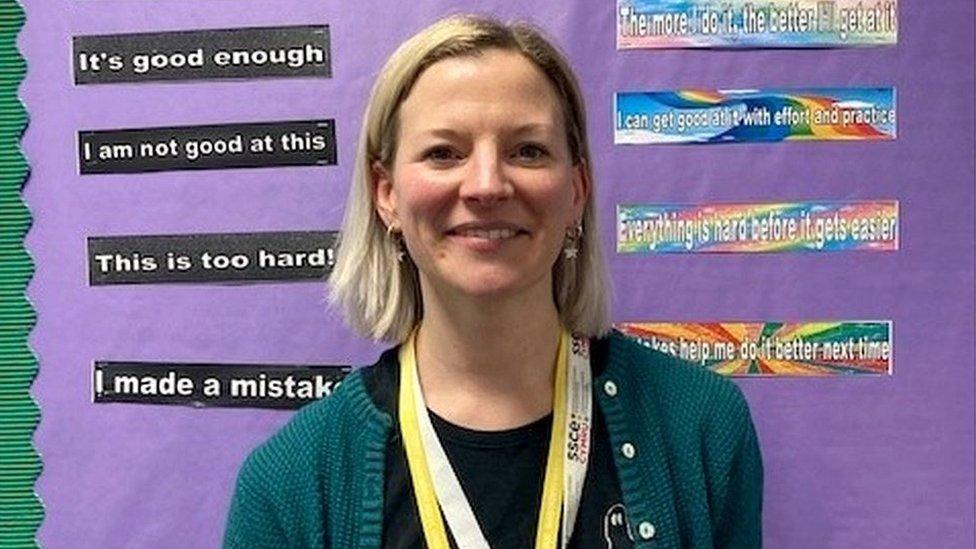
SSCE Cymru's Jo Wolfe said forces children often needed more help with their school work
SSCE Cymru estimates there are at least 2,000 children in 600 schools in Wales who either have parents in the armed forces or are veterans.
The organisation, which started in 2014, helps schools cater for the needs of children whose lives are disrupted by the uncertainty of armed forces life.
Jo Wolfe, who is the participation lead officer for the organisation, was a forces child herself and now her husband is in the Army.
"We reach out to the schools that have even one or two service children," she said.
"We have lots of pockets in Wales where there are higher numbers because there are lots of stations in Wales.
"We have lots of army children in Brecon, we have lots down here in Haverfordwest, because of the 14th Signal Regiment.
"We have lots of RAF children in the Valley (on Anglesey) and in the Vale of Glamorgan. We also have a navy community in Cardiff."
She said forces children often needed extra help with their school work.
"Schools apply for an MOD (Ministry of Defence) grant which is called an Education Support Fund," she said.
"From that, they can then filter down what individual need a child needs and if there are gaps in learning because of moving around so often. "
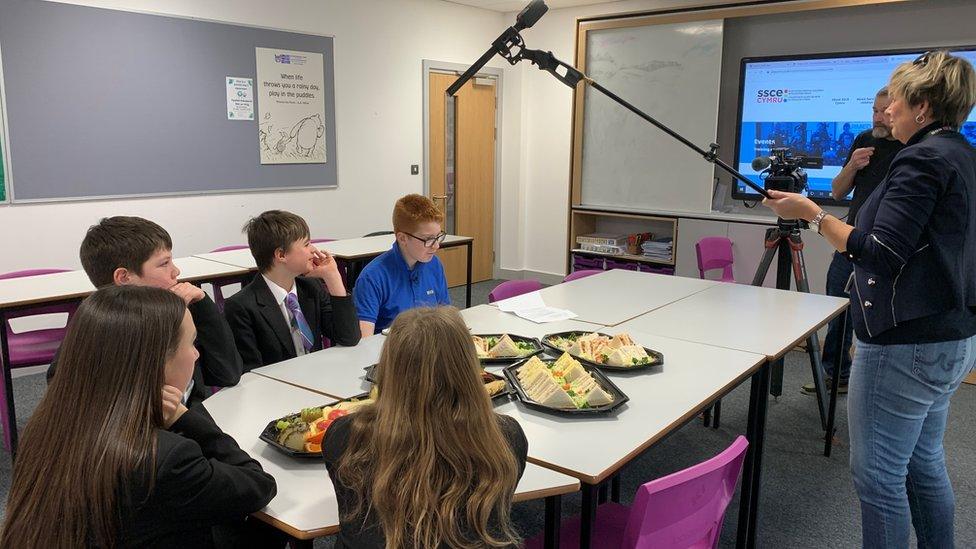
Riley wanted to find out more about what life was like for other forces children
At Haverfordwest High VC, there is a dedicated club for forces children, but it is clear everybody copes in their own way.
Caden said he prefers discussing any worries he has with family members, while Leo enjoys making programmes with Haverfordwest High Radio as a way of coping with the absence of his stepdad.
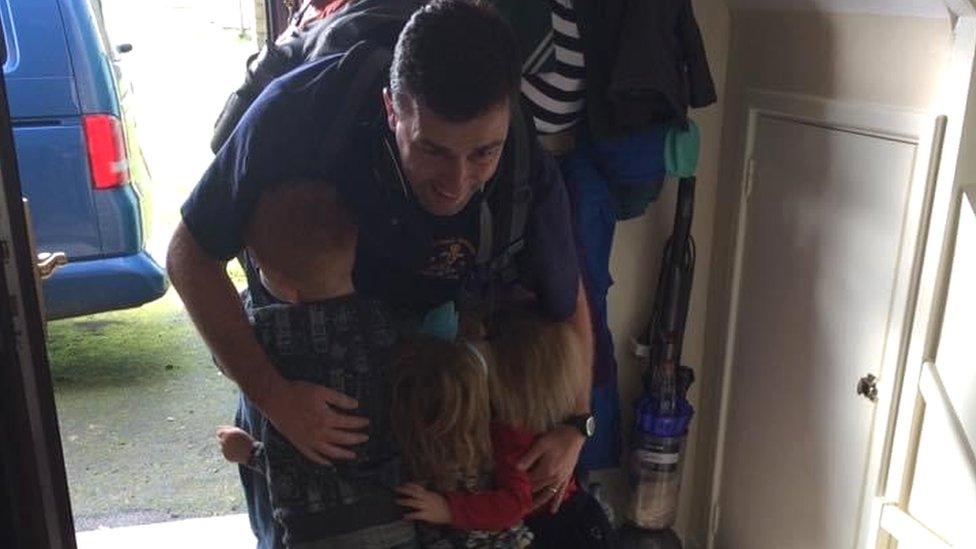
Riley's dad admits he did not realise the impact of his absences on his children
Emma Richards, who is part of the service pupil liaison team at Haverfordwest High, said help was always available to the 52-plus armed forces at the school.
"I organise revision clubs, after school sessions, arrange transport home. I do notice in school, I can tell if something is going on, because I'm with the children daily.
"If dad's on the move, they've got the Lifeforce Google page, which they send me messages on."
Emma said there were positive elements to being an armed forces child on occasions.
"We get to opportunities to go on other trips the rest of the school don't. It's nice knowing we can go to the club and do this stuff that we might have missed out on when we were little," she said.
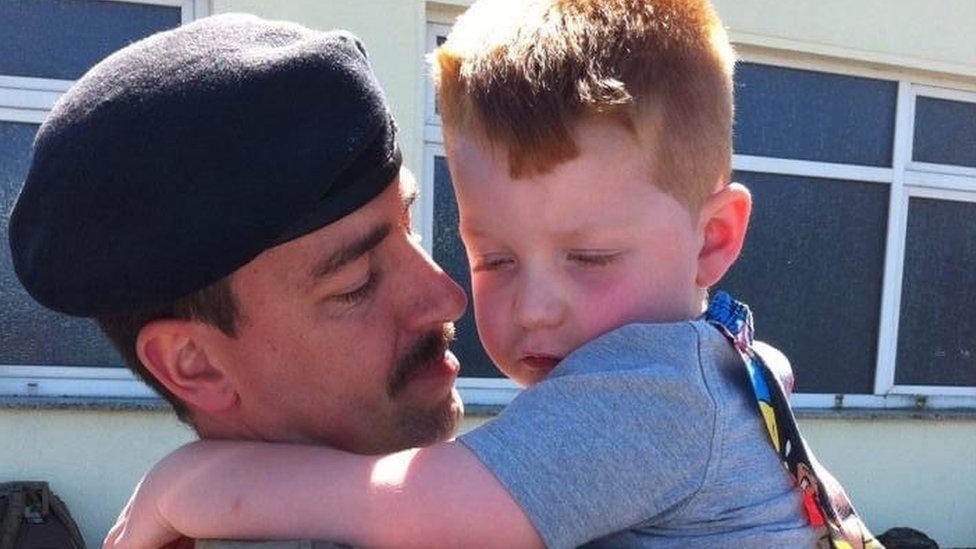
Riley's dad Bob left the Army as he missed family life
Back home, I discussed my visit to the school with my dad. He admitted going away was really hard for him too, and ultimately, it influenced his decision to leave the Army after a successful 20-year career.
"As a soldier with children you've almost got to be a little selfish at times," he said.
"It's a sad thing to say, but when it came to your birthday, I had to not think about it, as it would have made me more sad than I was at the time.
"I probably didn't realise the impact it was having on you. When you entered this competition (to be a BBC young reporter), since then it has made me think about 'actually' could I have done more as a parent to try and help you'?"
He told me that missing out on parts of our childhood was a major reason to leave the Army:
"I think I started realising it was having an impact on you and your brother and sisters. I wish the Army had done more to post me home, to be honest."
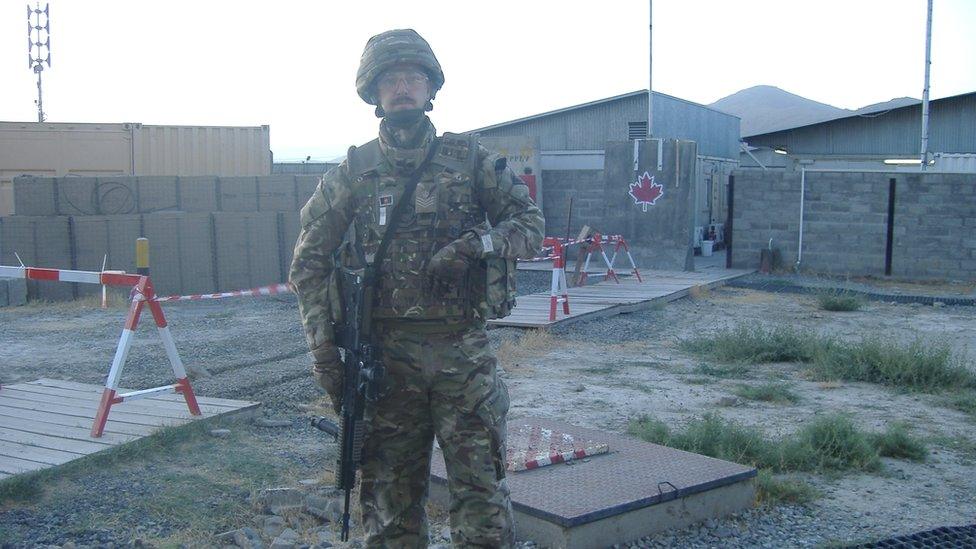
Dad is now training to be a primary school teacher and does not regret leaving the Army.
When I asked the pupils of Haverfordwest High whether they would consider a career in the armed forces, Emma and Gracie said "maybe".
Caden said his first choice would be to play international rugby. Leo said it was not something he wanted to do anymore.
As we tucked into our buffet at Haverfordwest High, I have to say, I agreed with Leo.
Having been separated from a loved one as a child, it's not something I would like to experience again as an adult. I have decided I will not be following my dad into the Army.
- Published24 February 2021
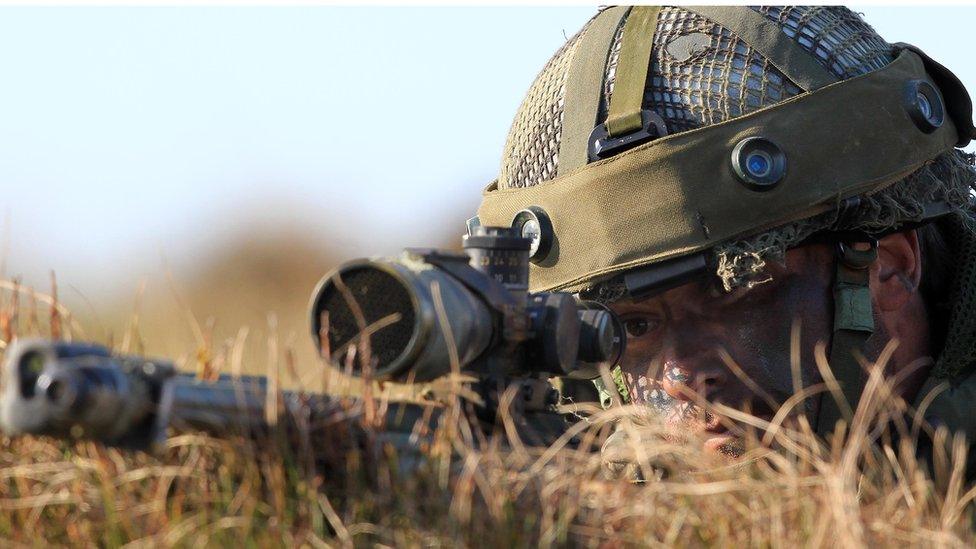
- Published2 January 2020
